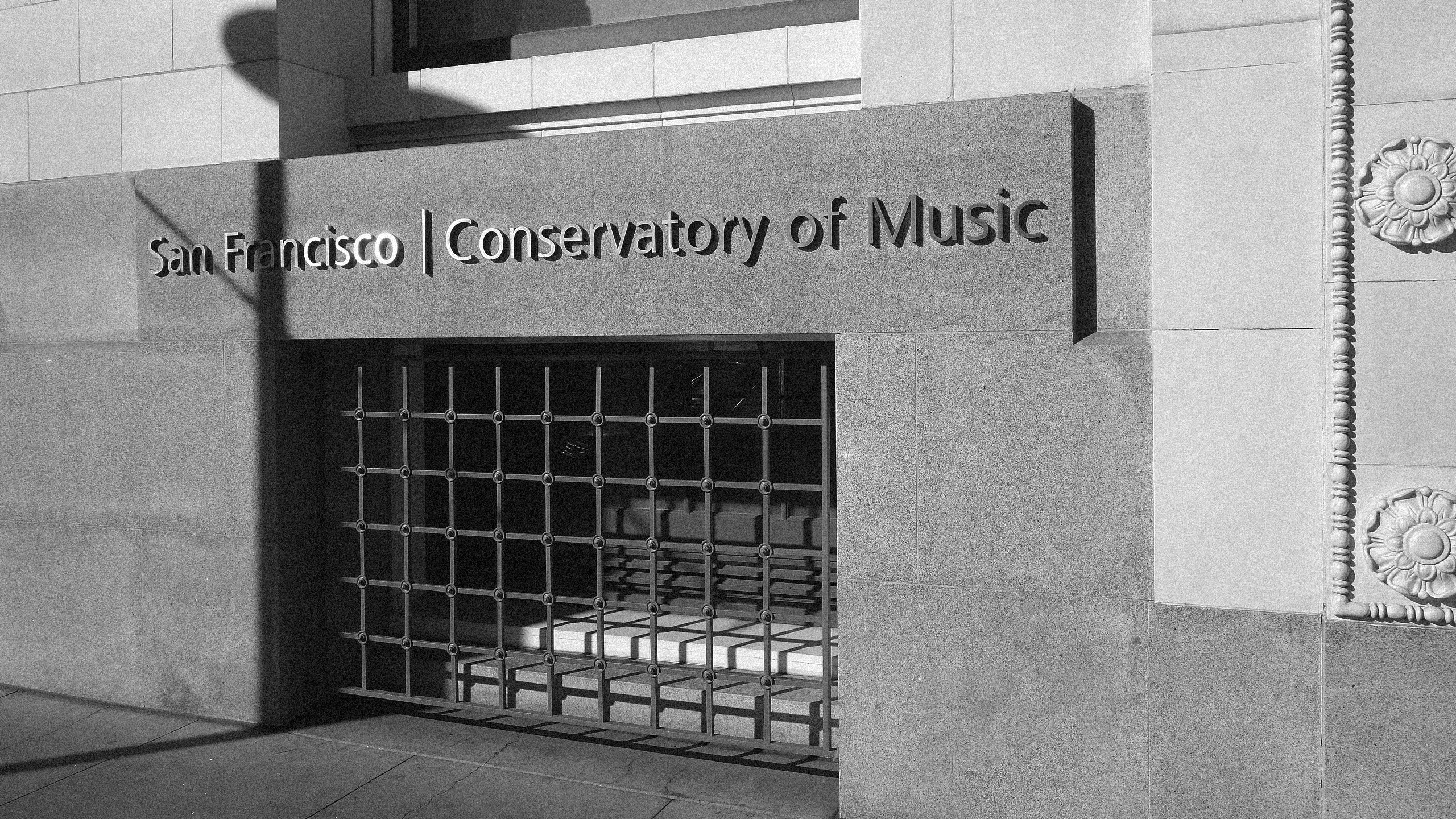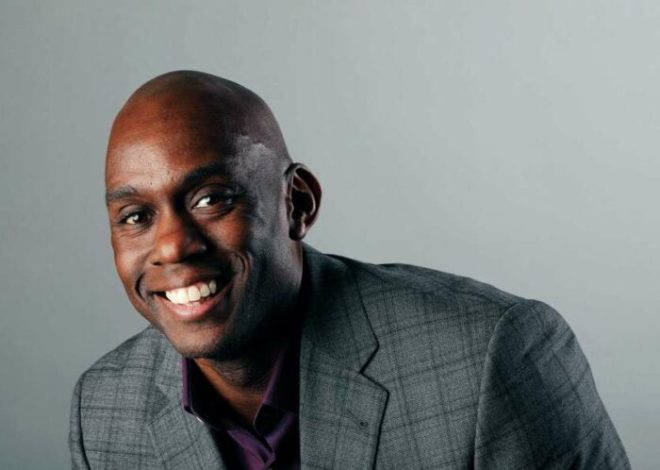
New Lawsuit Raises Allegations of Sexual Abuse at San Francisco Conservatory of Music • VAN Magazine
When violinist Lara Michaels auditioned for a place at the San Francisco Conservatory of Music (SFCM), most of the faculty members remained quiet, taking notes on her playing from behind a table. Axel Strauss, a professor of violin and chamber music, was the exception.
“He stood up, he came around the table towards me,” Michaels said. “He presented as very personable and interested in me.”
When Michaels, originally from Boise, Idaho, was accepted into the violin program at SFCM, she remembered her interaction with Strauss, choosing him to be her primary teacher.
As an undergraduate, Michaels especially loved chamber music, she told VAN. She dreamed of playing in a piano trio.
Michaels studied under Strauss for three years without incident. But, according to a civil lawsuit filed in December, Strauss began making sexual advances toward Michaels in the final year of her undergraduate degree. The complaint alleges that in December 2008, Strauss bought alcohol for a student gathering where Michaels was present, then gave her a ride home. (SFCM did not offer on-campus housing at the time.)
Then, Strauss allegedly pulled over in an isolated area, kissed Michaels, and “pushed her head down to his lap to force her mouth on his penis—physically forcing her to perform oral sex on him and digitally penetrated her vagina,” the filing claims.
According to the complaint, brought by Michaels and a second anonymous plaintiff against Strauss and the San Francisco Conservatory of Music, Strauss allegedly took advantage of his status as a respected professor to arrange interactions with these two female students outside the conservatory, then sexually assault them. (According to Michaels’s lawyer, Karen Barth Menzies, who specializes in sexual abuse cases, the second plaintiff decided to remain anonymous because she still works in the classical music industry.)
“This meritless legal action was filed many years after the alleged incidents supposedly took place,” John-Paul S. Deol, Strauss’s legal counsel, told VAN. “Professor Strauss denies the allegations made by the plaintiffs in their entirety and unequivocally. He will fight the claims made against him as the case progresses in court.”
The lawsuit claims that San Francisco Conservatory of Music administrators were aware that Strauss had unreported sexual relationships with female students at the school, but took no action. It states that at the time Michaels and the second plaintiff studied at SFCM, relationships between faculty and students were permitted so long as they were reported to administrators, but that Strauss was able to carry on unreported relationships without repercussions. (The current edition of the student handbook notes that “consensual sexual and romantic relationships between employees of SFCM (faculty and staff) and students at SFCM are strictly prohibited.”) The lawsuit also alleges that SFCM lacked clear procedures for reporting claims of sexual abuse or harassment at the conservatory when the plaintiffs studied there.
A spokesperson for the San Francisco Conservatory of Music did not respond to a request for comment.
Born in 1974 in Uelzen, Germany, Strauss studied violin in Lübeck and Rostock. In 1998, he won the Naumburg International Violin Competition, a success that was followed by a stint as Dorothy DeLay’s teaching assistant at The Juilliard School. Strauss has recorded seven albums for Naxos.
In 2012, Strauss joined the faculty of the McGill University Schulich School of Music in Montreal, Canada. He is currently on leave from that position. A spokesperson for McGill University told VAN that senior administration became aware of the allegations against Strauss in January, but otherwise declined to comment on “an ongoing judicial proceeding involving a faculty member.”
In the complaint, the anonymous plaintiff alleges that Strauss pressured her to go to a martini bar with him after a violin lesson. After driving her home, he walked her up to her apartment, where he allegedly “unbuttoned Plaintiff Doe’s pants and forced her hand onto his penis.” According to this account, Strauss then left the apartment. The student’s grades in his course allegedly “dropped inexplicably” after the incident. She left SFCM without graduating, and moved away from the Bay Area, leaving behind the professional connections she had amassed there.
The complaint also alleges that Strauss continued to sexually assault Lara Michaels, including in his studio during a lesson, until May 2009.
Although the California statute of limitations for sexual assault cases concerning victims over the age of 18 is normally ten years, in January 2023 the state passed a law opening a one-year “lookback window,” allowing civil cases “that went back no matter how far,” Menzies explained.
That statute, called AB 2777, was passed “specifically with the recognition, now well supported by science, that it takes much longer for survivors to be able to come forward,” Menzies added.
On February 2, 2022, Michaels and the other plaintiff went to SFCM with their allegations against Strauss. The conservatory hired an outside law firm to investigate, completing their report in fall 2022. According to the complaint, Michaels received an email from SFCM Associate Vice President of Human Resources and Administration, Michael Patterson, after the report was finished.
Patterson told the plaintiffs in the email that “the Investigation Report substantiated their allegations of Defendant Strauss’ sexual misconduct,” the filing says. This email was “worded as, ‘We believe you, and we definitely would have done something if we’d known,’” Michaels said.
Michaels was only allowed to read the full report in person in San Francisco and while under observation, but recalled that the complete investigation documented “a well-known and accepted norm of inappropriate relationships between faculty and students” at the conservatory. (The plaintiffs’ legal team currently does not have access to the report, but hopes to receive it during the discovery process.)
The report also allegedly quoted a former president of SFCM telling a male faculty member, “Isn’t SFCM a great place to meet women?”
Though the lawsuit concerns events that allegedly occurred over a decade ago, the conservatory’s handling of issues around sexual misconduct has come under scrutiny more recently. In January, the United States Department of Education Office for Civil Rights filed a report finding that San Francisco Conservatory of Music violated Title IX in its handling of allegations of sexual assault and stalking made by one student against another.
In 2022, a female student told SFCM that a male student, whom she was dating, sexually assaulted her, then stalked her after she ended their relationship. Though the conservatory’s Title IX officer did investigate, the Office of Civil Rights (OCR) found that this investigation did not satisfy Title IX requirements.
Among other problems, the OCR found that the investigative report resulting from the student’s allegations of sexual assault and stalking “did not include a statement of the allegations investigated, did not outline the details of the investigation, including how the witnesses were selected or if any were contacted who refused to participate, did not state the standard of evidence used, and did not make a recommendation for a determination in violation of this regulatory requirement.”
The OCR report also said that while SFCM staff directed the student to a website with information about support for victims of sexual abuse after her complaint, it didn’t actively provided “individualized supportive services” to the student. The conservatory issued an “Active Avoidance Order,” which required the two students involved to make reasonable efforts to avoid one another, but placed the primary responsibility of leaving on the alleged victim.
Based on these and other aspects of SFCM’s response, the OCR found “that the Conservatory was deliberately indifferent to the Student’s reports of sexual assault and stalking.”
According to Inside Higher Education, SFCM has agreed to overhaul its Title IX policies and reimburse the student for $5,000 in health-related costs, as well as allowing “her to retake for free any class in which her grade was negatively affected due to the college’s response.”
Since 2020, the conservatory has garnered headlines for securing large donations and making concurrent major investments on expanding its educational offerings. In 2021, it completed construction on its new, $200 million “vertical campus,” the Bowes Center. Between 2020 and 2022, the school acquired a series of other classical music companies: the management company Opus 3 Artists, the boutique Dutch record label Pentatone, and the prestigious London agency Askonas Holt. Buying these firms, SFCM President David Stull told VAN in 2023, gives “our students an ongoing, exotic set of educational performance experiences that are very difficult to find.”
In December 2022, the conservatory announced new Founders’ Scholarships, funded by the Ann and Gordon Getty Foundation for the Arts, given “in the spirit of the school’s pioneering female founders, Ada Clement and Lillian Hodghead.”
It’s too late for Lara Michaels to make use of such offerings, though she had planned to dedicate her life to music. Michaels began playing the violin at age seven, and performed solo music by Bach for the first time when she was ten. When Michaels began studying at SFCM, she practiced violin for six hours a day by herself—not counting rehearsals, lessons, and other musical activities.
In her musical work, she got used to exploring raw feelings. “You are asked to plumb the depths of your soul and become extremely emotionally vulnerable,” she said, “because that’s what you’re trying to transmit with music: emotion and feeling.”
“Those experiences are just so deeply etched in your consciousness and your experience,” she continued. “So when I pick up my violin, I’m transported back to that period of time, in that room, with the words that were said to me.”
“The music that I have has his handwriting on it,” she said, referring to Strauss.
“Everything about it is saturated in this experience,” Michaels continued. “There’s nothing about it that is untouched. It’s deeply painful, because I really loved classical music prior to this happening.”
Michaels now lives in New York, and has left the field completely. “It’s so intermeshed,” she said. “It’s just easier at this point not to have a relationship with classical music or my instrument.” ¶

